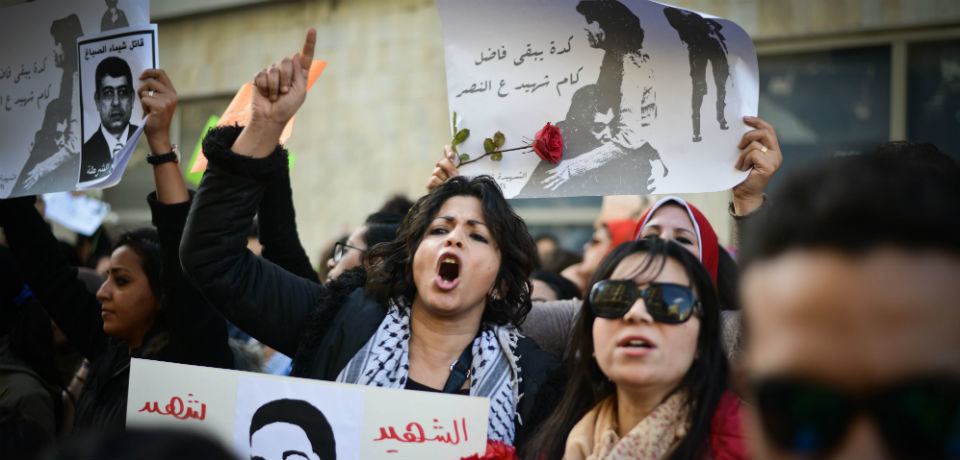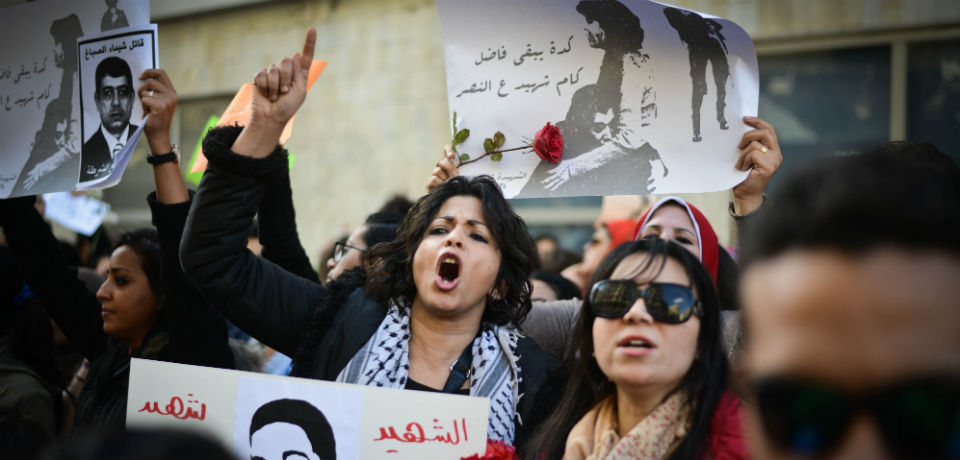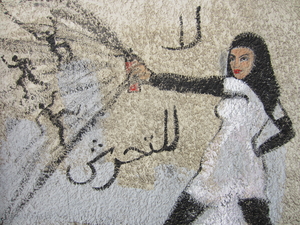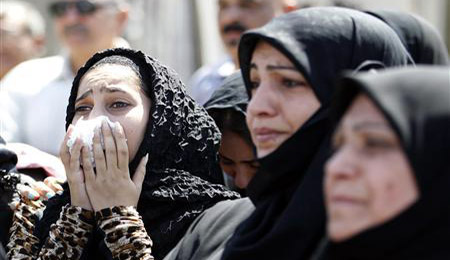Last updated on September 9th, 2021 at 06:03 pm
Women Are the Best Weapon in the War Against Terrorism
Fifteen years ago, the U.N. enshrined the idea that equality between men and women is inextricably linked with peace. It’s time to act on that.
If there has been one common thread shared by the extremist movements that have captured the world’s attention in the last year, from northern Nigeria to northern Iraq, Syria to Somalia, and Myanmar to Pakistan, it is this: In each and every instance, the advance of extremist groups has been coupled with vicious attacks on women and girls’ rights. Yazidis who have escaped from the Islamic State have told harrowing storiesof women and girls being traded among fighters, forcibly “married,” forced to convert, and repeatedly raped. These horrific mass violations are mirrored in the accounts of Nigerian girls who fled from Boko Haram, in the tales of Somali women liberated from the rule of al-Shabab, and in descriptions of life under the Islamist group Ansar al-Din in northern Mali.
The name and location may change, but the common agenda and first order of business for these extremist groups is almost invariably to place limits on women’s access to education and health services, restricting their participation in economic and political life, and enforcing the restrictions through terrifying violence. These violations are the extreme end of a global wave of fundamentalist conservatism, but it is an agenda shared by extremists of all religions, whose efforts seem invariably to focus on the suppression of women’s autonomy and a return to delineated, outdated gender roles.
While extremists place the subordination of women at the forefront of their agenda, however, the promotion of gender equality has been only an afterthought in the international community’s response to extremism. This failure must be remedied. The international community must recognize, as the extremists do, that empowered women are the foundation of resilient and stable communities — communities that can stand firm against radicalization. Sociologist Zeinabou Hadari, who has worked for over two decades on the promotion of women’s rights and leadership in Niger, once said that every step forward for women’s rights is a piece of the struggle against fundamentalism.
Fifteen years ago the Security Council adopted Resolution 1325 on the importance of women’s participation in all areas of peace and security, including conflict prevention, conflict resolution, and peacebuilding. This milestone was the result of decades of activism culminating in one revolutionary idea — that peace is inextricably linked with equality between men and women. Overwhelming evidence from around the world shows that women’s empowerment is a powerful force for economic growth, social and political stability, and sustainable peace. Gender equality and women’s participation in the workforce and income generation are linked to higher GDP per capita; equal access to land and other agricultural inputs can increase agricultural productivity and slash world hunger; and involving women in peacebuilding strongly increases the probability that violence will end. It is no coincidence that in societies and communities where gender equality indicators are higher, women are less vulnerable to the impacts of violent extremism. Last year, the Security Council, the highest decision-making body on international peace and security, strengthened its commitment with a follow-up resolution and undertook to incorporate women’s voices and participation in all areas of work, including counterterrorism.
But as the political power (and firepower) of armed extremist groups has grown, so too has the focus on military and security-driven solutions to stop their progress. The scale and severity of violence and suffering clearly warrants an international response utilizing all effective tools — including force. But the international community must learn from the mistakes of the past. Militarized counterterrorism operations disrupt economic and social activity, and destroy civilian infrastructure — the schools, markets, and medical facilities relied on by women in traditional caring roles. When governments focus resources on expensive military operations, social ministries like health, family services, and education are often the first to face budget cuts. Civilian displacement leaves women and girls vulnerable to sexual and gender-based violence, including, with grim regularity, crimes committed by the security forces supposed to be protecting them.
The failure to prevent these negative impacts constitutes willful negligence. It results in women’s re-victimization, and ultimately in more poverty, more desperation, and more radicalization. Militarized responses always risk civilian casualties and threaten to drive marginalized young people into the ranks of extremists. Indeed, as increasing media reports show, despite the brutal and well-known crimes committed against women by the Islamic State, teenage girls are reportedly running away from their homes to join it.
All of this points in a clear direction: The struggle against extremism should not and cannot be treated as an entirely, or even predominantly, military exercise.While in some contexts and against some groups the use of force is necessary, it must always take place within the boundaries of international law, and with an objective of securing space for local women themselves to establish and protect their rights and those of their families and communities.
This past September, partially in response to the rise of the Islamic State, the Security Council adopted Resolution 2178. It called, for the first time, for the promotion of women’s empowerment to halt the spread of violent extremism. Then the following month, the president of the Council issued a statement reiterating women’s role in countering radicalization. It is well past time for these words to become meaningful global actions.
A number of organizations worldwide such as Women Without Borders and PAIMAN Alumni Trust are utilizing the strategic role of mothers and matriarchs to build early warning systems when they suspect their husbands, sons, or daughters may be involved with extremist groups. While this is important, the international community must also prioritize women’s participation, leadership, and empowerment in prevention and response frameworks. This is a critical factor to address the structural inequalities underpinning extremist violence, and to ensure that when the capacity of one extremist group is destroyed, another will not rise up to take its place. As the indomitable Libyan human rights defender Alaa Murabit wrote in December, women peacebuilders are leading the fight against extremism by challenging its root causes: “we walk into extremists’ homes, schools and workplaces. We speak to those who feel they have no alternative.”
The way forward is clear. The international community must take up the challenge to combine militarized action with governance, human rights, and development — including women’s empowerment and gender equality. Drones, airstrikes, and boots on the ground can halt the advance of extremist groups, but these tools cannot defeat radical ideologies nor build resilient families and communities. Empowered women are the best drivers of growth and the best hope for reconciliation. They are the best buffer against the radicalization of youth and the repetition of cycles of violence. Women and girls are the first targets of attack — the promotion of their rights must be the first priority in response.
Are you considering donating?
International partners can support and strengthen Iraqi campaigns, stimulating international networking, internships and cultural exchanges with Iraqis, calling for international volunteers to support Iraqi Civil Society Organizations and to join Solidarity In Action!
Show your support




